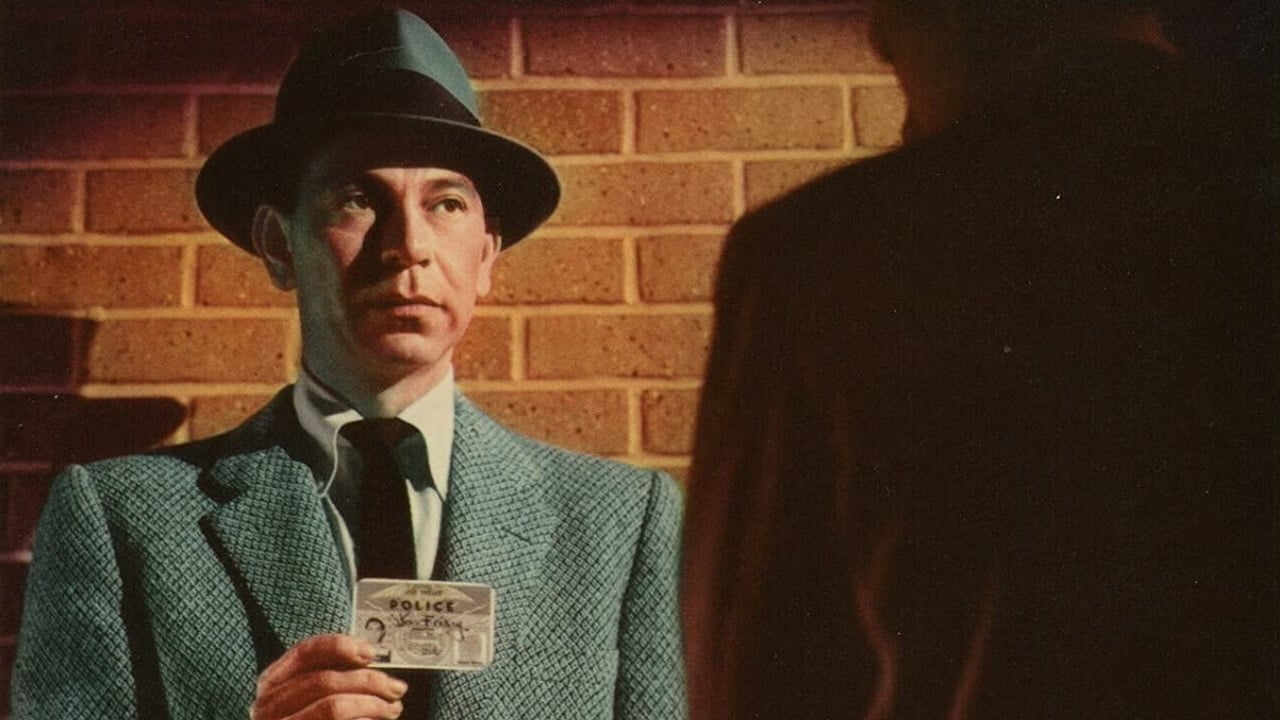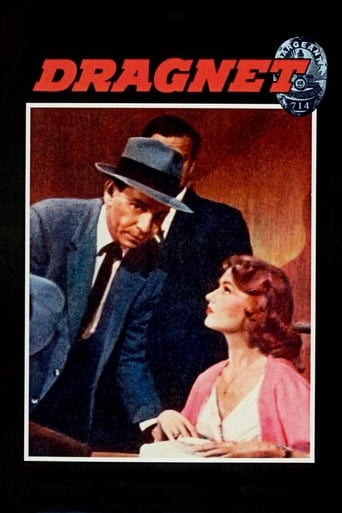

So popular was Dragnet proving to be on the small screen that producer and star Jack Webb decided to expand it into a feature film. So what we got here is a television episode of Dragnet expanded to 90 minutes and in color.Webb and partner Ben Alexander are assigned to the homicide of Dub Taylor whose familiar face and voice are hardly seen on the screen before he gets cut down with both barrels of a shotgun. The killer gave him two more while he was down to make sure. Altogether quite grisly and gruesome.So the rest of the film under the command of their captain in gang intelligence Richard Boone, Webb and Alexander try to gather the evidence to nail the bad guys. Not that Taylor was any kind of solid citizen, he was a collector of bad debts for the mob and he was skimming on his collections. Still he was due justice.Watching this film should make one realize how far we've come post the Miranda decision in protecting rights of the accused. One thing that Boone orders is something called a 'bumper tail' where the cops are assigned to tail up close and personal and to frisk at will. No way that would happen today except in some real right wing heaven.Interesting film, nicely done in Dragnet's famous crisp, staccato style and be happy if you're a criminal you weren't operating back then.
... View MoreEarly Joe Friday, whom we see here, was different from later, more mature Joe Friday. His name was still Joe Friday and he still wore a gray jacket with dark slacks but the jacket sometimes had little STRIPES in it and, in one scene, he wears a DARK BLUE SUIT. I'll tell you the truth. I was shocked.This feature film is based on the series from the 1950s. It's tougher than the stories that we're used to from "Dragnet 1968" and in some ways not nearly as good. Friday and his partner, Ben Alexander, don't bump into quite so many loopy characters. Most of those we meet here are hardened criminals. There is Virginia Gregg as the pitiful, drunken wife of an executed criminal, true. You can tell she's a wreck because there is a newspaper scattered untidily across the floor. My house looks worse than that every day. If my place looked as good as that of this dissolute, weeping wife, I'd consider it suitable for visits from guests.The sets provide some continuity with the later series. They're cheap and sparse, and the lighting is high key and flat, as in "I Love Lucy." We can't help notice that this Joe Friday is given to seriousness and gruesome quips, not that the later Friday was ever a barrel of delicate laughs. But here, in questioning a suspect they're already convinced is involved in the initial murder, Friday comes on tough, sarcastic, humiliating, in a way he wouldn't have in 1968. He makes the guy use his own palm for an ash tray although there is a glass ash tray only a few feet away.The plot is a little complicated, what with all the physical evidence, the hit men called in from out of town, advanced technology like a small tape recorder, and name after name thrown at us without much in the way of introduction. I could follow Max Troy okay. He was the guy with the bad stomach but no ash tray. The other flood of names merely mixed me up.The movie adheres to the conventions of the time. There are allusions to "the syndicate" and "the organization" but nobody who's a member has an Italian name. As far as I could tell, there was no ethnicity at all.I found myself a little disappointed in it. It's a fast moving policier. I expected the more relaxed approach of the series I was familiar with. Joe and his partner should have slowed down a bit. His partner should have formed a bond of affection with Pismo clams or Dr. Scholl's foot powder. But for the most part, the beefy Ben Alexander just tags along. Joe Friday himself is younger, sleeker. And when a good-looking policewoman asks if his concern for his safety is personal, he smiles warmly (for him) and replies that he just wants to see her live to make sergeant. I think we'd ALL like to know more about THAT part of Joe Friday's life.
... View MoreI saw this movie in 1954 as a child, and frankly, at that time it seemed to me to be both amateurish and boring. I knew that Jack Webb had written, produced and directer it, and that's usually a pretty good prescription for a failure. Fifty-five years later, I still feel the same. This motion picture was made only because "Dragnet" (the TV series) was popular enough to draw in an audience, or at least, I'm guessing that the folks putting up the money thought so . If in fact "Dragnet" made a profit (I have my doubts) it was only because it was made on a very slim budget. What the movie audiences got for their money was just a thirty minute TV show that had been blown up -- filmed in color -- and little more. "Dragnet" was like a lot of films or TV shows that caught on at a particular time. They were different, rather than they were particularly good. "Dargnet" isn't something that holds up over time; rather, it becomes a curiosity, something that has to be defended. Several comments have have been made that this film reflected both the 1950's and Joseph R. McCarthy. Well, actually this film reflected Jack Webb, and his conception of movie making. If you see Joe McCarty here, it's because you want to see Joe McCarthy. This movie is not political unless you just think that policing is just a reflection of closet fascism.
... View MoreEvery time I see this movie, I find something else about it that makes me like it all the more. Whether its the cars, the attitudes, the clothes or just the story itself. I liked the cast from the very first time and recognized most of them from the TV series. Seeing again, now, was like getting visit from some old friends. It departed from the TV show in that you saw the crime committed up front and there was no epilogue of the outcome. But otherwise, it was classic Joe Friday. Just the facts. Not a lot of superfluous rhetoric or endless scenes of police tailing bad guys. Lots of voice over with details like time of day, location, etc. Simple interrogation from Friday with smart-mouth answers from the bad guys and the snappy, emotional responses from Joe. It kind of gets you, right where you live, you know? Don't miss this one. You won't be sorry.
... View More